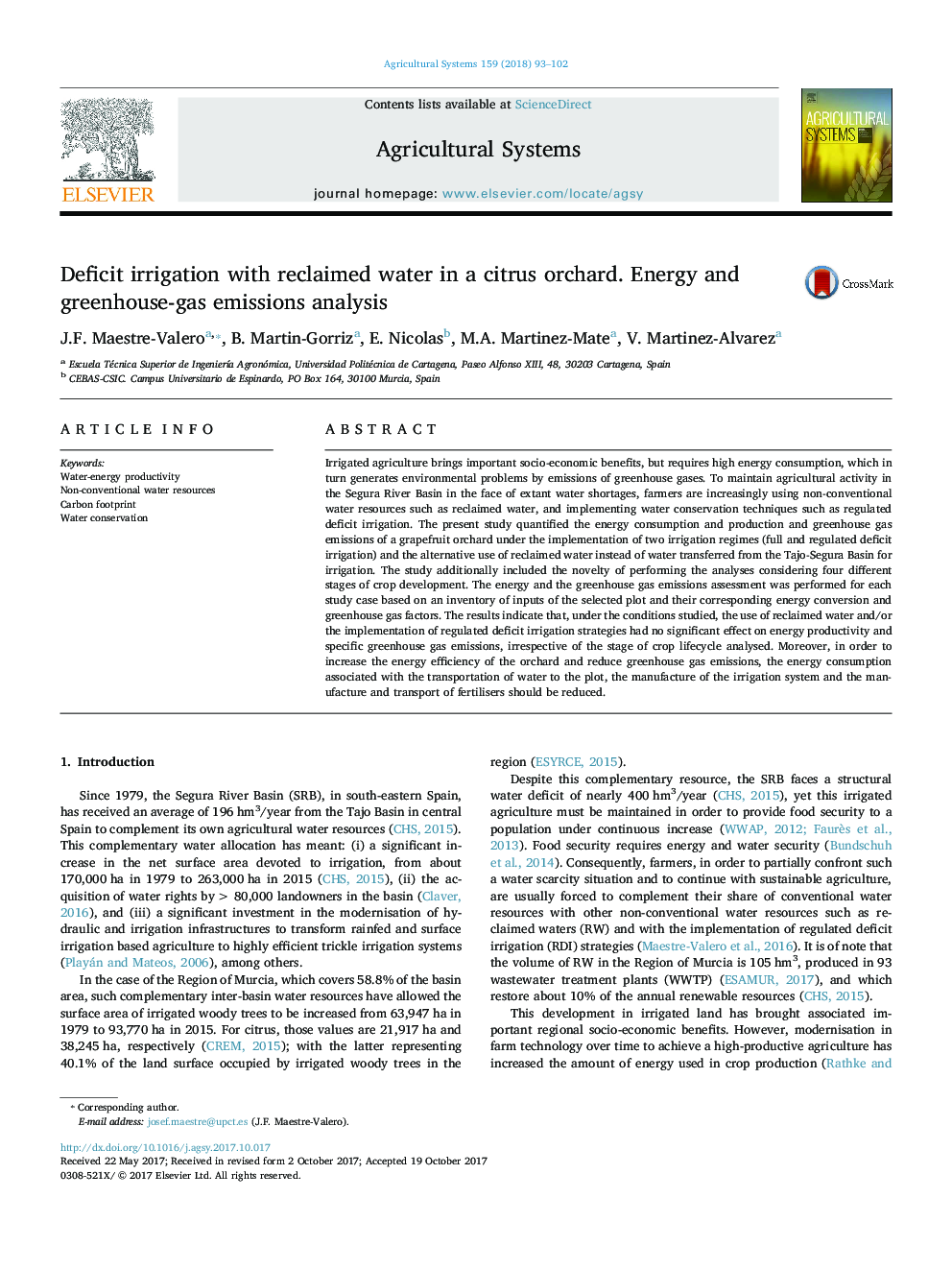| Article ID | Journal | Published Year | Pages | File Type |
|---|---|---|---|---|
| 8875117 | Agricultural Systems | 2018 | 10 Pages |
Abstract
Irrigated agriculture brings important socio-economic benefits, but requires high energy consumption, which in turn generates environmental problems by emissions of greenhouse gases. To maintain agricultural activity in the Segura River Basin in the face of extant water shortages, farmers are increasingly using non-conventional water resources such as reclaimed water, and implementing water conservation techniques such as regulated deficit irrigation. The present study quantified the energy consumption and production and greenhouse gas emissions of a grapefruit orchard under the implementation of two irrigation regimes (full and regulated deficit irrigation) and the alternative use of reclaimed water instead of water transferred from the Tajo-Segura Basin for irrigation. The study additionally included the novelty of performing the analyses considering four different stages of crop development. The energy and the greenhouse gas emissions assessment was performed for each study case based on an inventory of inputs of the selected plot and their corresponding energy conversion and greenhouse gas factors. The results indicate that, under the conditions studied, the use of reclaimed water and/or the implementation of regulated deficit irrigation strategies had no significant effect on energy productivity and specific greenhouse gas emissions, irrespective of the stage of crop lifecycle analysed. Moreover, in order to increase the energy efficiency of the orchard and reduce greenhouse gas emissions, the energy consumption associated with the transportation of water to the plot, the manufacture of the irrigation system and the manufacture and transport of fertilisers should be reduced.
Related Topics
Life Sciences
Agricultural and Biological Sciences
Agricultural and Biological Sciences (General)
Authors
J.F. Maestre-Valero, B. Martin-Gorriz, E. Nicolas, M.A. Martinez-Mate, V. Martinez-Alvarez,
